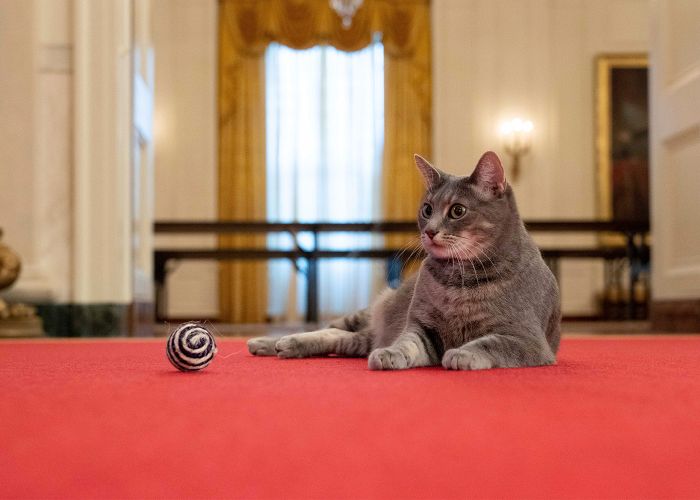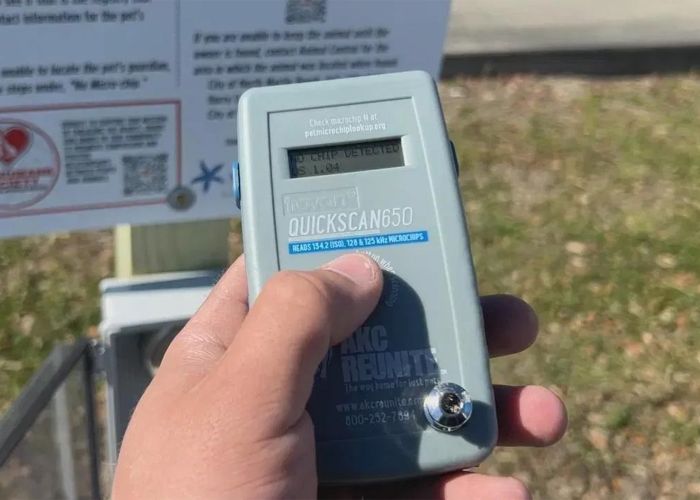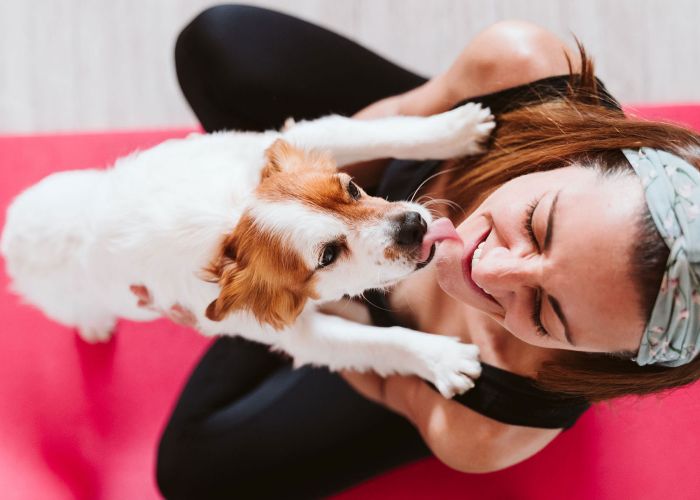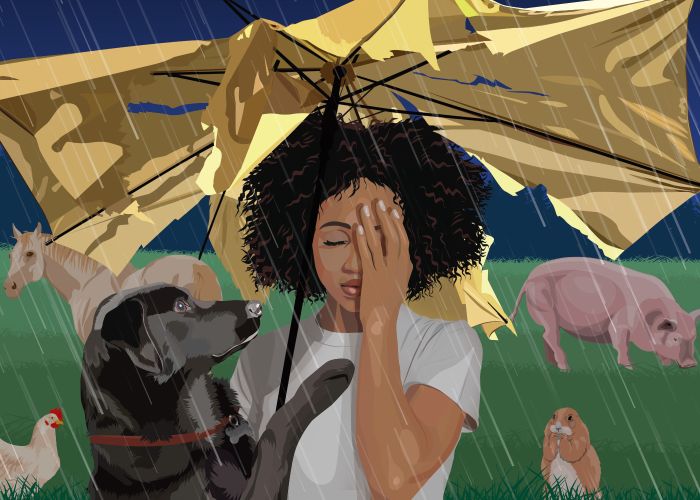Q&A: Meals on Wheels for people and pets
New survey shows the critical benefits of helping senior citizens keep their pets
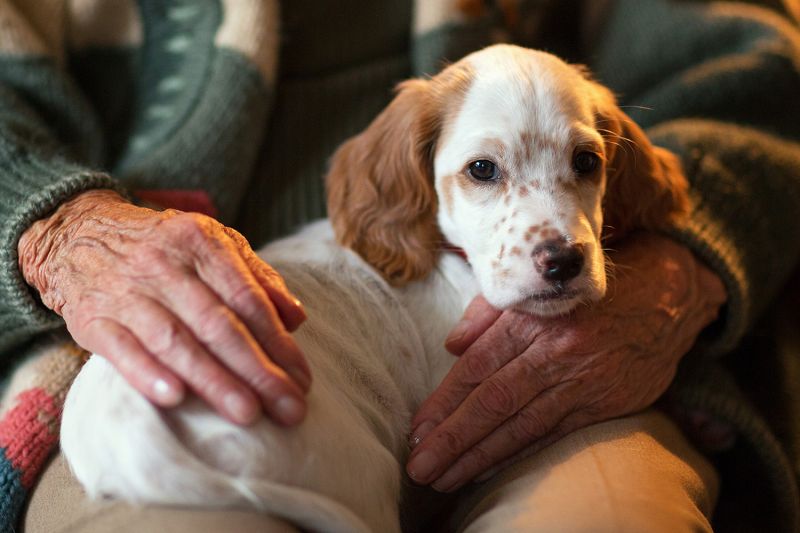
People need their pets, especially when those people are homebound seniors—and especially when those homebound seniors are cut off from the world during a pandemic.
Based on evidence that companion animals improve the mental and physical well-being of seniors, Meals on Wheels America officially began supporting pet assistance services in 2007 (some of its more than 1,100 local Meals on Wheels members nationwide had already started to offer similar services) with help from PetSmart Charities funding. Among other pet services, local Meals on Wheels programs provide food, supplies, and free or discounted veterinary care, including transportation to and from the vet. A recent survey of more than 400 clients conducted by Meals on Wheels America brings home the essential nature of the human-animal bond for seniors.
In this edited interview with Karen E. Lange, Morgan Hultquist, impact manager of strategy for Meals on Wheels, and Joel Hess, program manager for PALS (Pets Assisting the Lives of Seniors) of Meals on Wheels Central Texas, talk about the survey results and the importance of helping seniors keep their pets.

Can you describe the major findings of the survey?
Morgan Hultquist: Seniors who had pets were often feeding the meals they had delivered to their pets. More than one in five clients reported going without food to feed their pets. Nearly 30% of respondents went without personal care, medical care, paying their bills. That was absolutely surprising—how necessary it is for older adults to keep their pets. The strength of the human-animal bond is critical to an elder human being.
Throughout the pandemic, we saw the issues of social isolation and loneliness illuminated, with pets serving as a source of comfort. Loneliness is a major risk factor for depression, which can accelerate health decline. Isolation increases the risk of heart disease by 29% and stroke by 32%.
What did the survey tell you about the pet assistance Meals on Wheels is providing?
MH: More than 80% surveyed said Meals on Wheels helped them keep their pet. They might not have been able to care for them [without that help]. Fifty percent indicated they had no one else to help them with their pet. The need exists for this programming, and the programming really works.

Can you describe the work the PALS program does?
Joel Hess: We deliver on average to 283 clients a month. We provide food and supplies. We work with the Texas Veterinary Medical Foundation, which donates the exams for free and tries to get the tests and vaccines for free. We offer assistance with grooming, and we offer assistance with fostering[say, when an owner needs to go into the hospital]. We have a holiday [pet] gift delivery—beds and cat trees—for Christmas and Hanukkah. [When a pet dies,] we partner with a cremation company that offers cremation services at no cost: They can get a paw print [memento].
What have you observed clients sacrifice for their pets?
JH: I’ve had clients who put off medical procedures, clients who were nutritionally deficient, who were giving the food to their pets. The person delivering the food said, “I saw the food tray on the floor where the dog food was.”
Why do you think their pets mean so much to them?
JH: Pets are social facilitators. Dogs and cats make you smile. You can talk about your pet. They’re a living part of your day.
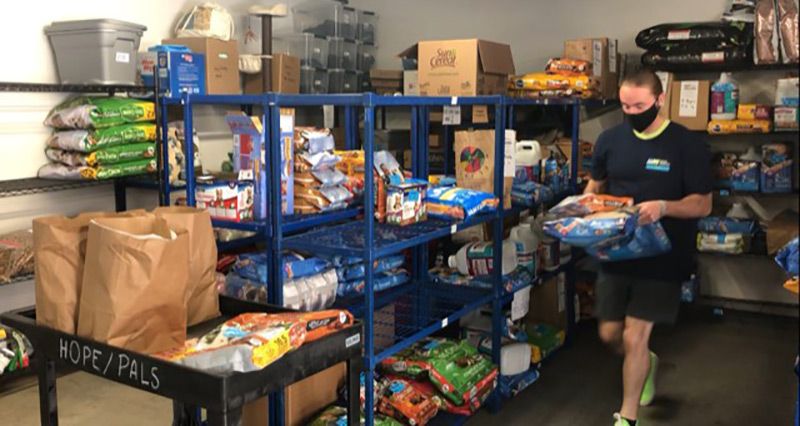
Can you describe the close bonds clients have with their pets?
JH: One client said, “I’ve been sitting in my house and I’m all alone. I just sit here and stare at the walls. I would love to have a pet. But I would have to take a bus to adopt.” [With our help,] she got in contact with a program offering on-site adoption. They met outside in her backyard wearing masks. She did it! She found a dog. She said, “This dog is perfect. He’s a senior, just like me.” I got a picture of her with the dog in her lap.
[Another client, her dog] Maisie would hop up on her and rub her neck. She had pain where Maisie was rubbing and whining. She credits Maisie with not only helping her diagnose the cancer discovered there, but helping her recover—going for walks.
I had a client whose apartment building burned to the ground. [Right after,] he was very nervous about not having his dog with him. I thought, “There’s no way he’s going to go into a [human] shelter without his dog.” He let me take his dog when the dog needed surgery, but he was on pins and needles for the six hours. My instinct was he would have turned down [permanent] housing if they said you can’t take your dog. That dog was going with him. Luckily, he found housing [with his dog]. It’s getting harder and harder for anyone to deny the strength of the human-animal bond.


